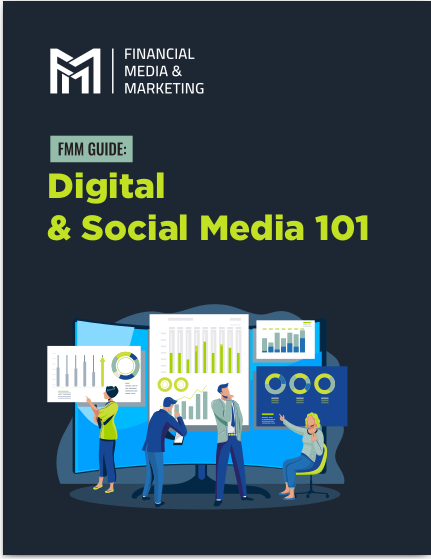Key Takeaways
-
Establishing yourself as a trusted expert requires consistent engagement, valuable insights, and strategic branding to build authority in your field.
-
Leveraging online platforms and maintaining clear communication can deepen trust with your clients and leads, enhancing your reputation.
Why Being a Trusted Expert Matters
In today’s competitive market, trust is the cornerstone of success for financial advisors. People seek professionals they can rely on for accurate advice and guidance. By positioning yourself as a trusted expert, you’re not only fostering stronger client relationships but also attracting new leads who are looking for someone with authority and credibility in the financial world. But how do you achieve this?
Building the Foundations of Trust
Understand Your Audience’s Pain Points
You can’t become an expert if you don’t understand your audience. Take time to identify their biggest challenges and concerns. What keeps them up at night? Is it saving for retirement, managing debt, or building an investment portfolio? Once you have these insights, you can tailor your messaging to show that you have the solutions they need.
Stay Updated and Knowledgeable
Your expertise is only as valuable as the information behind it. The financial world evolves rapidly—from regulatory changes to market trends. Dedicate time to professional development. Attend industry conferences, participate in webinars, and stay informed about emerging topics. This ensures you’re always prepared to offer the most relevant advice.
Crafting a Strong Online Presence
Optimize Your Website for Authority
Your website is often the first impression potential clients will have of you. Make sure it reflects your expertise by:
-
Including a professional biography that highlights your credentials and achievements.
-
Offering free resources like guides or blog posts that address common financial concerns.
-
Ensuring contact information is easily accessible so clients feel you’re approachable.
Harness the Power of Social Media
Social platforms like LinkedIn, Twitter, and even Facebook can be excellent tools for showcasing your knowledge. Share regular updates, insights, and tips. Use these platforms to answer common questions or debunk myths about financial planning. Consistency is key—posting weekly or bi-weekly establishes you as a reliable voice in the industry.
Engage With Your Audience
Don’t just broadcast information; engage. Respond to comments, start conversations, and participate in industry-related discussions. This interaction helps build rapport and positions you as someone who genuinely cares about helping others.
Providing Value Through Content
Write Informative Articles and Blogs
Publishing well-researched articles on relevant financial topics can position you as a thought leader. Focus on actionable insights, such as:
-
Strategies for maximizing retirement savings.
-
How to create a budget that actually works.
-
The importance of diversification in investments.
Offer Webinars or Live Q&A Sessions
Hosting online events is a fantastic way to engage with potential and current clients. These sessions allow you to showcase your expertise while addressing specific concerns in real-time. Promote these events on your website and social media, encouraging attendees to ask questions or suggest topics.
Create Video Content
Videos are a powerful medium for building trust. Whether it’s a quick explainer on a complex financial topic or a longer session discussing market trends, videos allow your audience to connect with you on a more personal level. Keep them professional but approachable—use clear language and avoid overly technical jargon.
Networking and Community Engagement
Attend Industry Events
Networking with peers and participating in panel discussions or workshops can boost your credibility. Being visible at these events signals to others that you’re actively involved in your field.
Partner With Local Organizations
Collaborate with community groups or local businesses to host educational seminars or workshops. This not only enhances your local presence but also demonstrates your commitment to educating others about financial wellness.
Building Relationships That Last
Practice Active Listening
Listening to your clients’ concerns is one of the most effective ways to build trust. Make them feel heard and valued by asking thoughtful questions and summarizing their points to show you understand.
Follow Up Regularly
Trust isn’t built overnight. Stay in touch with your clients through periodic check-ins, newsletters, or personalized updates about their financial progress. This ongoing communication reinforces your commitment to their success.
Deliver Consistent Results
Clients are more likely to trust you when they see tangible results. Whether it’s helping them achieve a savings goal or navigating a challenging financial decision, delivering on your promises solidifies your reputation as a reliable advisor.
Leveraging Testimonials and Reviews
Ask for Client Feedback
Satisfied clients can be your best advocates. After successfully completing a project or achieving a milestone, ask for their feedback. Positive reviews can be featured on your website or social media profiles to attract new leads.
Showcase Success Stories
While maintaining confidentiality, highlight examples of how your guidance has made a difference. This demonstrates your effectiveness and reassures potential clients that you have a proven track record.
Avoiding Common Pitfalls
Overpromising and Underdelivering
While it’s important to be confident in your abilities, avoid making guarantees you can’t keep. Transparency about what clients can expect builds long-term trust.
Ignoring Negative Feedback
Not every review or comment will be glowing, but how you handle criticism speaks volumes. Address issues professionally and constructively to show that you’re committed to improvement.
Monitoring and Evolving Your Strategies
Track Your Progress
Use analytics tools to monitor how your audience is engaging with your content and communication efforts. Are they opening your newsletters? Are your social media posts being shared? These metrics can guide your strategy.
Adapt to Changing Needs
The financial landscape and client priorities are constantly shifting. Be flexible and willing to update your approach to stay relevant and meet your audience’s needs.
Becoming a Resource Clients Can’t Live Without
Ultimately, your goal as a financial advisor is to be seen as an irreplaceable resource. By providing consistent value, fostering open communication, and demonstrating genuine care for your clients’ success, you can solidify your position as a trusted expert in your niche.










